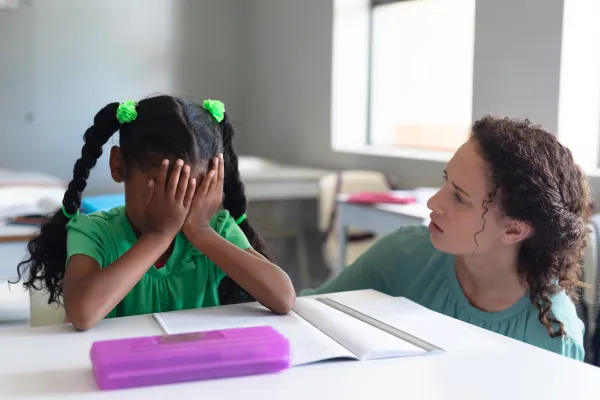The Christmas season often brings joy and excitement, but for many children, it can be a time of anxiety, sadness, fear or emotional overwhelm. Often this is displayed outwardly and is a form of communication stemming from unmet needs or past experiences.
Christmas can magnify the emotional challenges faced by vulnerable children, including those in care, experiencing neglect, or dealing with family conflict.
Rethinking the Naughty List
The Naughty List concept simplifies children’s behaviour into binaries—“good” or “bad.” However, behaviour is our window into a child’s world. By understanding that “acting out” often reflects unprocessed emotions, unmet needs, or fear of instability, Father Christmas (and the adults supporting children) can take steps to address root causes rather than symptoms.
For example:
- A child sabotaging Christmas activities may be struggling with memories of past disappointments.
- A child refusing to share toys may be responding to a history of scarcity and unmet needs.
- A child overwhelmed by Christmas festivities may be navigating sensory overload, unfamiliar family dynamics, or fear of change.
Instead of “coal”, these behaviours call for compassion, structured support, and affirmations that reinforce their safety and value.
Recognising the Challenges Christmas Brings to Vulnerable Children
For many children, Christmas highlights disparities and intensifies struggles:
- Children in care may feel torn between foster families and birth families, experiencing conflicting loyalties and memories of neglect.
- Children in homes with financial stress may internalise shame about their family’s inability to meet societal expectations.
- Children exposed to domestic violence or substance abuse may associate Christmas with unpredictability or danger.
- Transitions and disruptions to routine can unsettle children who rely on structure for emotional regulation.
These dynamics often manifest in behaviour - clinginess, emotional outbursts, withdrawal, or even refusal to engage in holiday activities. Please, Father Christmas, respond with curiosity rather than judgment!
Strategies for Christmas at School and Beyond
- Be Mindful in the Lead-Up to Christmas
Recognise that Christmas-related distress may emerge weeks in advance. Behaviours like emotional outbursts, clinginess, or avoidance may signal anxiety. Stay curious and supportive. - Foster Positive Relationships
Build trust by maintaining consistent, safe relationships with students. Provide calm-down zones, offer alternatives to overwhelming activities, and engage in de-escalation techniques such as quiet time, walks, or creative outlets like art and music. - Tailor Activities and Content
Acknowledge that not all children experience Christmas the same way. Include lessons on managing stress, navigating social situations, and expressing emotions. Avoid holiday-centric questions like “What did you get for Christmas?” and opt for inclusive language like “It’s great to see you back!” - Provide Clear Routines and Visual Supports
Maintain structure to reduce anxiety. Use visual schedules to prepare children for changes, such as rehearsals or celebrations, and avoid surprises. Explain what will happen during special events and ensure there’s a clear return to routine afterwards. - Offer Transitional Objects and Connections
Allow children to take a “piece” of school home over the holidays, such as a class teddy bear or favourite book. Sending postcards or notes from teachers can remind children they are still cared for and provide a sense of continuity.
(See also The Power of Transitional Objects ). - Address Family Struggles Compassionately
Be sensitive to children who may struggle with family dynamics or limited resources. Share resources with families, like information on community support services, food banks, or counselling hotlines. For students who appear overly excited about Christmas, consider that this could mask anxiety rather than joy. - Prepare for Regression
Recognise that the return to school after the holidays may bring setbacks. Separation anxiety, behavioural challenges, or emotional dysregulation might resurface. Plan to offer extra support during the first weeks of the new term.
Support Staff Well-Being
Christmas can be emotionally and physically taxing for adults, too. Teachers and caregivers should practice self-care, recognise their own stressors, and seek support when needed. But let's look out for each other, too!




